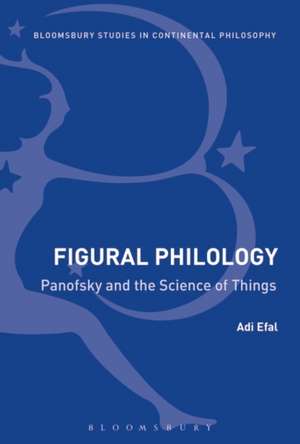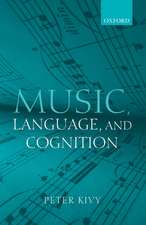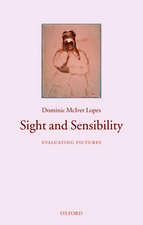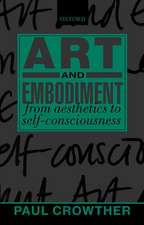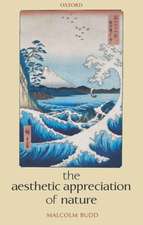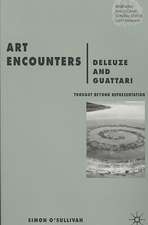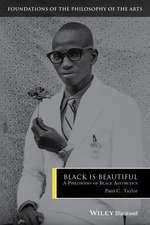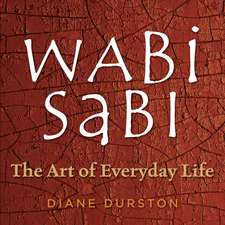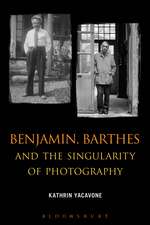Figural Philology: Panofsky and the Science of Things: Bloomsbury Studies in Continental Philosophy
Autor Adi Efalen Limba Engleză Hardback – 19 oct 2016
| Toate formatele și edițiile | Preț | Express |
|---|---|---|
| Paperback (1) | 236.74 lei 6-8 săpt. | |
| Bloomsbury Publishing – 18 apr 2018 | 236.74 lei 6-8 săpt. | |
| Hardback (1) | 773.39 lei 6-8 săpt. | |
| Bloomsbury Publishing – 19 oct 2016 | 773.39 lei 6-8 săpt. |
Din seria Bloomsbury Studies in Continental Philosophy
- 14%
 Preț: 179.26 lei
Preț: 179.26 lei - 23%
 Preț: 179.10 lei
Preț: 179.10 lei - 13%
 Preț: 238.22 lei
Preț: 238.22 lei - 31%
 Preț: 772.98 lei
Preț: 772.98 lei - 14%
 Preț: 888.65 lei
Preț: 888.65 lei - 22%
 Preț: 772.98 lei
Preț: 772.98 lei - 13%
 Preț: 258.33 lei
Preț: 258.33 lei - 23%
 Preț: 256.02 lei
Preț: 256.02 lei - 30%
 Preț: 715.00 lei
Preț: 715.00 lei -
 Preț: 255.66 lei
Preț: 255.66 lei - 22%
 Preț: 773.06 lei
Preț: 773.06 lei - 14%
 Preț: 891.10 lei
Preț: 891.10 lei - 30%
 Preț: 774.20 lei
Preț: 774.20 lei - 13%
 Preț: 257.97 lei
Preț: 257.97 lei - 30%
 Preț: 715.00 lei
Preț: 715.00 lei - 22%
 Preț: 774.62 lei
Preț: 774.62 lei - 13%
 Preț: 256.20 lei
Preț: 256.20 lei -
 Preț: 256.59 lei
Preț: 256.59 lei - 22%
 Preț: 257.50 lei
Preț: 257.50 lei - 13%
 Preț: 257.03 lei
Preț: 257.03 lei - 13%
 Preț: 257.68 lei
Preț: 257.68 lei - 13%
 Preț: 258.15 lei
Preț: 258.15 lei - 30%
 Preț: 715.19 lei
Preț: 715.19 lei - 13%
 Preț: 256.49 lei
Preț: 256.49 lei - 22%
 Preț: 891.10 lei
Preț: 891.10 lei -
 Preț: 255.94 lei
Preț: 255.94 lei - 13%
 Preț: 236.45 lei
Preț: 236.45 lei - 30%
 Preț: 714.92 lei
Preț: 714.92 lei - 30%
 Preț: 773.81 lei
Preț: 773.81 lei - 22%
 Preț: 772.98 lei
Preț: 772.98 lei - 22%
 Preț: 889.08 lei
Preț: 889.08 lei - 30%
 Preț: 714.61 lei
Preț: 714.61 lei -
 Preț: 256.59 lei
Preț: 256.59 lei - 14%
 Preț: 772.98 lei
Preț: 772.98 lei - 22%
 Preț: 257.68 lei
Preț: 257.68 lei - 22%
 Preț: 891.75 lei
Preț: 891.75 lei - 30%
 Preț: 773.81 lei
Preț: 773.81 lei
Preț: 773.39 lei
Preț vechi: 1112.70 lei
-30% Nou
Puncte Express: 1160
Preț estimativ în valută:
148.03€ • 160.85$ • 124.43£
148.03€ • 160.85$ • 124.43£
Carte tipărită la comandă
Livrare economică 21 aprilie-05 mai
Preluare comenzi: 021 569.72.76
Specificații
ISBN-13: 9781474254014
ISBN-10: 1474254012
Pagini: 224
Dimensiuni: 156 x 234 x 23 mm
Greutate: 0.5 kg
Editura: Bloomsbury Publishing
Colecția Bloomsbury Academic
Seria Bloomsbury Studies in Continental Philosophy
Locul publicării:London, United Kingdom
ISBN-10: 1474254012
Pagini: 224
Dimensiuni: 156 x 234 x 23 mm
Greutate: 0.5 kg
Editura: Bloomsbury Publishing
Colecția Bloomsbury Academic
Seria Bloomsbury Studies in Continental Philosophy
Locul publicării:London, United Kingdom
Caracteristici
The
book
offers
comparative
readings
of
Panofsky's
major
methodological
writings
as
well
as
elucidations
of
Panofsky's
conceptual
terminologies
and
their
origins
Notă biografică
Adi
Efalis
Lecturer
in
Philosophy,
University
of
Cologne,
Germany.
Cuprins
Acknowledgements
1
Philological
rationality
and
the
constitution
of
the
history
of
art
2
Archimedean
points:
monuments
as
duration
reservoirs
Panofsky's
Riegl
Philological
imperatives
in
Riegl's
methods
The
curse
and
the
blessing
in
the
study
of
artworks
Art
history
as
Korrektur
of
monuments
Riegl's
Alterswert
Kunstwollen
and
meaning
Philological
reproduction
of
past
realities
3
Forms
and
figures:
two
fundamental
modes
of
pictorial
productionForms
and
figures
within
the
pictorial
domain
Figuration
in
the
history
of
art
The
figural
situation
Figuration
and
meaning
Forms
and
figures
From
the
plastic
to
the
pictorial
4
Pictorial
validities
in
art
and
history
Panofsky's
Idea
and
the
disclosure
of
the
iconoclastic
structure
Ideas
between
truth
and
reality
in
Idea
Auerbach's
'Figura':
plasticity
and
history
?Real
and
historical':
the
figural
mechanics
of
validation
Reality,
value
and
truth:
two
versions
of
realist
argumentation
Iconophilic
method
5
Sub
figuralitate
historiæ
The
figure
and
the
reality
of
the
past
Figural
and
historical
meaning
6
Iconological
space:
Panofsky
with
Warburg
Panofsky's
historical
space-time
Simmel's
historical
time
Warburg's
art
history
and
philology
Warburg's
philological
gaze
Vitalisms
and
archaism
Iconology
and
philology
7
The
figural
synthesis
of
historical
reality
in
the
iconology
table
Synthesis
Symbols,
ideas
and
values
From
symbolic
value
to
synthetic
intuition
Intuition
and
synthesis
Figural
synthesis8
Philology's
recollective
habitus:
Panofsky
with
Spitzer,
Auerbach
and
Curtius
The
Aristotelian
distinction
between
memory
and
recollectionTwo
modes
of
memory
The
role
of
figures
in
recollection
Humanism
as
a
recollective
activity
Hylomorphist
humanismFigural
distinction:
a
model
for
the
recollective
disjunctionElastic
hylomorphism
9
Figural
content
and
the
past
as
a
res
extensa
Iconoclasm,
iconism
and
the
reality
of
the
past
The
past
reality
of
a
work
versus
historical
meaning
The
unseen
prototypes
of
the
artwork
Vanishing
point
and
carrying
surface:
spatialities
of
historical
explication
Past
reality
of
works
and
the
reality
of
the
pastThe
distance
between
the
reality
of
the
past
and
the
historical
reality
of
a
work
Nonseen
and
figured
Conclusion:
towards
a
figural
philology
The
domain
Historical
meaning,
past
reality,
historical
reality
Philological
production
Figural
synthesis
Distinctive
realism
Untemporal
history
Moderate
historicism
Panofsky
NotesBibliography
Index
Recenzii
Efal's
is
a
fresh
new
voice
working
at
the
intersection
of
art
history
and
philosophy,
and
it
is
therefore
no
surprise
that
she
has
written
such
an
exciting,
distinctive
and
innovative
book.
I
mean
only
the
highest
praise
when
I
say
that
there
is
nothing
quite
like
it
on
the
market
at
the
moment.
